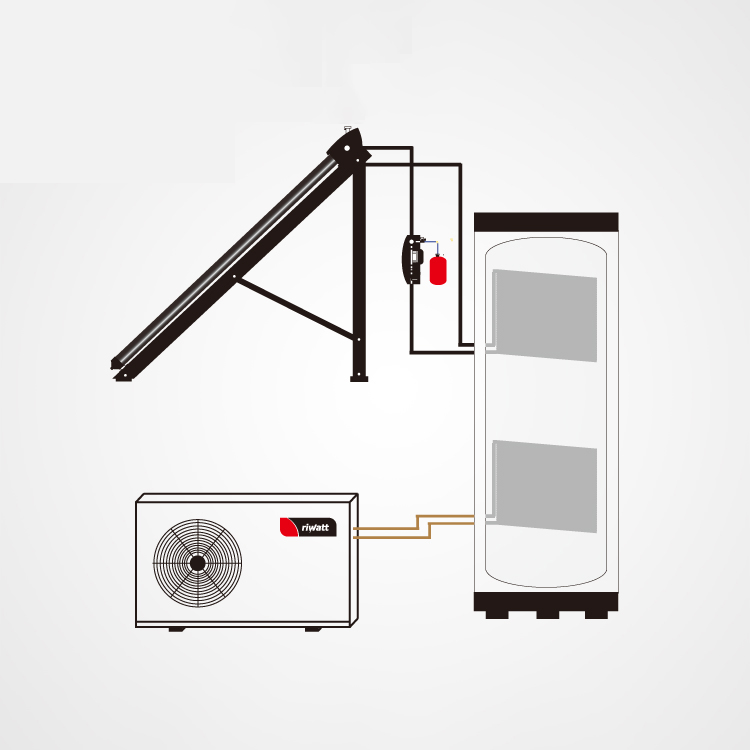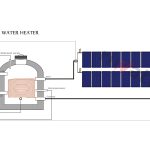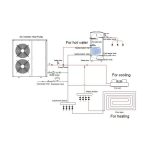A solar hybrid heat pump water heater combines the technology of a heat pump with solar energy to efficiently heat water. This type of water heater is designed to take advantage of both renewable energy sources to reduce energy consumption and lower operating costs.
Here’s a brief overview of how it typically works:
Solar Collectors: The system includes solar collectors, which are typically installed on the roof or in an area with good exposure to sunlight. These collectors absorb sunlight and convert it into heat.
Solar Thermal System: The solar collectors transfer the collected heat to a fluid (usually a glycol solution) circulating through the system. This heated fluid is then pumped to a heat exchanger.
Heat Pump: The heat pump component of the system extracts additional heat from the surrounding air. It works similarly to an air conditioner but in reverse. The heat pump uses electricity to move heat from the ambient air to increase the temperature of the refrigerant.
Heat Exchanger: The heat exchanger transfers the heat from both the solar thermal system and the heat pump to the water in the storage tank.
Storage Tank: The heated water is stored in a tank for later use. The storage tank is well-insulated to minimize heat loss.
By combining solar and heat pump technologies, these hybrid water heaters can provide hot water efficiently even during periods of low sunlight or colder weather when the efficiency of solar collectors alone might be reduced. The heat pump component helps to supplement the energy when solar energy is not sufficient.
Benefits of solar hybrid heat pump water heaters include reduced energy consumption, lower utility bills, and a smaller environmental footprint compared to traditional water heaters. However, the performance may vary depending on factors such as climate, installation location, and system design. It’s important to consult with a professional and consider your specific circumstances before choosing a water heating system.



